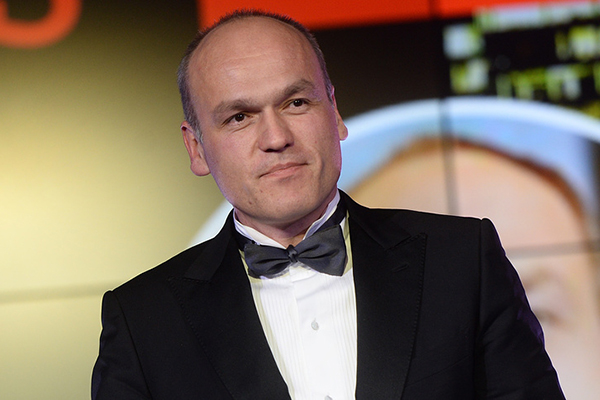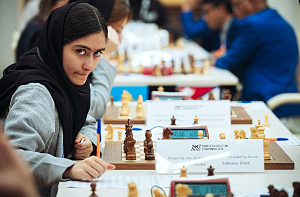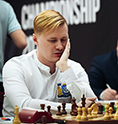ART RUSSE – The Taste of Success
Article published in TIME

Brilliance at chess and an acute commercial acumen are two of Russia’s most enduring characteristics, but it is rare to find someone who embodies both.
As President of the Russian Chess Federation and Chairman of the Tuloma Investment Company, Andrey Filatov is one such person and much more besides. Organizer of major chess tournaments in the Tretyakov Gallery, the Russian Museum and the Louvre, in 2012 he set up the Art Russe Foundation to develop a greater understanding of Soviet art, subsequently ramping up his efforts in the field through unconventional approaches. There was therefore, something entirely appropriate that, in his desire to advertise the achievements of Russia’s legion of artists over past century, Filatov decided to acquire La Grace Dieu Des Prieurs chateau and its vineyards that perch on a rocky limestone hillside on the crossroads between Bordeaux and Saint Emilion.
After investing an undisclosed but undoubtedly substantial sum in its mansion, its grape cultivating and winemaking facilities which today, following major reconstruction, comes complete with a cylindrical fermenting chamber featuring an image of astronaut Yuri Gagarin in zero gravity the terroir now regularly produces vintages of the highest quality.
Ultimately, the success of the project is down to the effective combination of tradition and modernity as well as Filatov’s commitment to the preservation of the continuity of French winemaking. The art of vine management at the château is based on the principle of reasonable production and takes into account the cycles of nature, time and climate as a matter of course. Each stage of the process involves careful soil management and delicate introduction of modern equipment and the latest developments in lean farming and bilateral cordon pruning have also been adopted.
As for packaging, Filatov has opted for green glass bottles inspired by ancestral French traditions and labels decorated with the Art Russe collection’s outstanding examples of Russian and Soviet art of the 19th and 20th centuries.

Filatov’s success in cross-marketing Russian art and French wine is typical of the nose for business that he has shown time and again throughout his career. Having trained as a professional chess player, his commercial acumen first emerged during a trip to Katowice in Poland for a tournament. “It wasn’t hard to work out that if you sold goods from the Soviet Union in Poland and then brought other ones back home, you could make a very decent living for yourself,” he recalls.
Filatov was the mastermind behind two of Russia’s largest privately owned transportation companies: the London-listed GlobalTrans (where he still controls an 11.5% stake) and Global Ports (from which he has now fully exited). In 2015 Filatov decided to consolidate his other existing assets into Tuloma. The decision was taken against the backdrop of a surge of capital outflow out of Russia that had been triggered by a deep recession and the imposition of US-led sanctions after the annexation of Crimea. Partly spurred by its founder’s desire to attract inward investment it was both a patriotic move and, as it turns out, an extremely astute one.

Contrary to expectations, the Russian economy not only survived this double blow, but appears to be positively thriving on the back of it. “The country is vast and there are huge opportunities here,” says Filatov. “Russia is quite capable of defending itself, which is important, but the country, its corporations, and its people all have minimum debt. Speculative capital may still be flowing out, but sovereign wealth is coming in. There is great potential here for both investors and Russia itself.”
The predominance of Russian stocks in Tuloma’s asset base certainly underlines the fact that Filatov is putting his money where his mouth is, but he is not afraid to invest abroad. As 2017 drew to a close, it was announced that he had decided to join a group of investors planning to develop a 100 billion cubic meter gas field in southern Uzbekistan. “I strongly believe in gas,” he says. “It is always very profitable.”
But it is not just about money with Filatov, as his decision to set up Art Russe six years ago proves. Since then, the foundation has grown into one of the foremost private collections of Russian and Soviet art from between 1917 and 1991 and has seen some of its portfolio displayed in several international institutions including the Frye Art Museum in the U.S., as well as on thousands of bottles of French Grand cru wine.






















